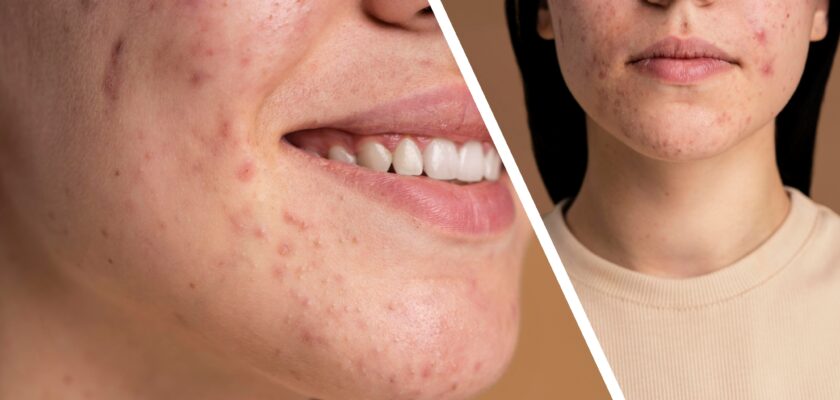Fungal acne is a kind of infection that affects the hair follicles on your skin. The most common symptoms are small pimples with minimal variation in shape or size, which are caused mostly by itching.
Whiteheads and skin irritation can be caused by fungus acne. This disorder is sometimes mistaken for acne vulgaris. This is the type of acne most frequently causing blackheads.
Most of the times people believe that they are having acne, but it is not going to improve with treatment. This is generally an indication of a fungal infection in your hair follicle rather than just normal acne.
Acne vulgaris and fungal acne are two different types of acne, and they are also caused by different things. There are different remedies to treat these 2 acnes. We recommend not to use anti-acne treatments as the treatment won’t work on fungal acne but make it worse.
It is important to know what type of acne you have and what treatments you can perform to get rid of them. Let us see below what fungal acne is, and its causes, and how you can treat them.
What are the Causes of Fungal Acne
In contrast to acne, fungal acne is not mainly caused by oil and bacteria, yet predominantly fungal acne bacteria are fueled by the creation of oil and sebum.
This kind of acne commonly occurs in the chest, forehead, back, or upper part of the arm, although acne can also appear on the face, much as regular acne.
Does Hot & Humid Weather Causes Fungal Acne
Yes, heat and humid weather can cause fungal acne. According to a dermatologist people staying in humid and hot areas usually sweat more compared to colder regions, which promotes rapid growth of Malassezia yeast in your hair follicles.
Contagious Disease
As with other fungal illnesses, fungal acne can be spread from person to person. It is contagious and can be transferred through physical touch, even if you share any clothing, a towel or sleep on the same bed, used any products on your face, etc.
Sweating Causes Fungal Acne
Excessive can lead to acne, so it is best to take a shower immediately after your workout so you avoid sitting in your sweaty and tight clothes, as you may feel uncomfortable when walking or when you sit.
You should wear tight clothes, instead choose loose and comfortable clothes where you can exercise freely. You need to avoid clothes that are made from spandex material, immediately change your clothes after working out, or excessive sweating.
Excessive Use of Antibiotics
Excessive use of oral or topical antibiotics can lead to fungal acne. It happens when you use these antibiotics they destroy your natural layer of good bacteria on your face, hence accelerating yeast production on your skin, leading it to fungal infection.
This fungal acne can appear anywhere on your face, cheeks, nose area, forehead are the most common ones.
How to Identify Fungal Acne
Due to their similar appearances, fungus acne is commonly misinterpreted as acne vulgaris. Here is the chart to differentiate fungal acne and acne vulgaris or bacterial acne. In the image you will see how fungal acne look like also vulgaris or bacterial acne.
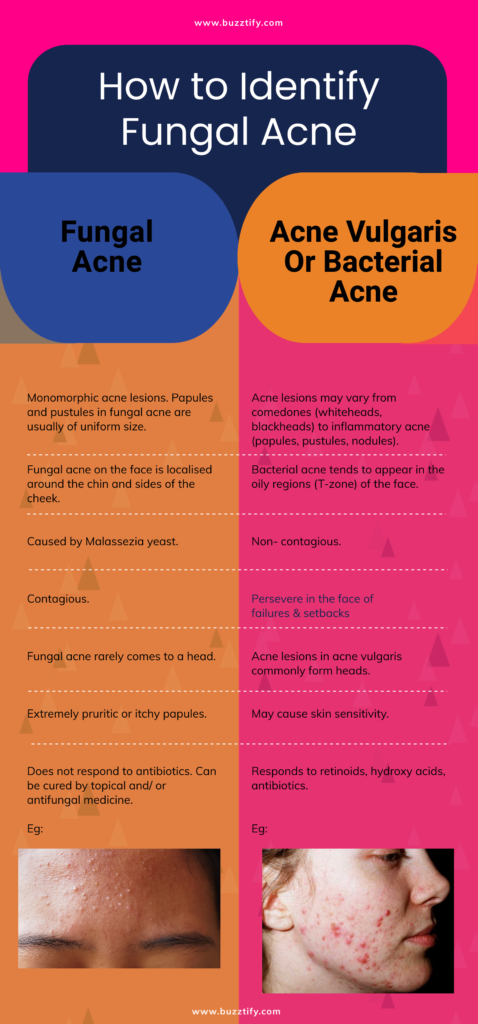
Natural Home Treatments to Cure Fungal Acne
Home fungal acne treatments are one of the best ways to deal with any infections or any pain you have. If you are not a fan of using any chemicals or products on your face or you are scared to use any new product on your face, then these home remedies are the ones for you to get rid of your fungal acne at home.
Avocado leaves
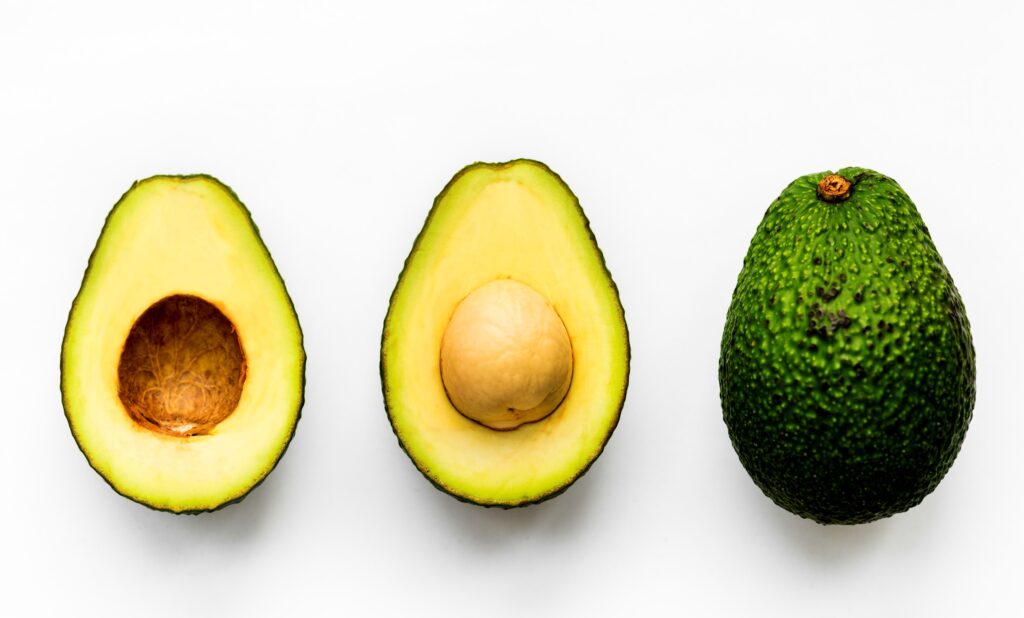
I guess this may be surprising and many of you may not know that avocado and its leaves have one of the amazing skin healing properties. The leaves of avocado are used in many antifungal creams / products to lower the growth of fungus.
You can prepare the paste of the avocado leaves and fruit too to remove the acne on your face, it will give good results making your skin soft and healthy.
Black Pepper
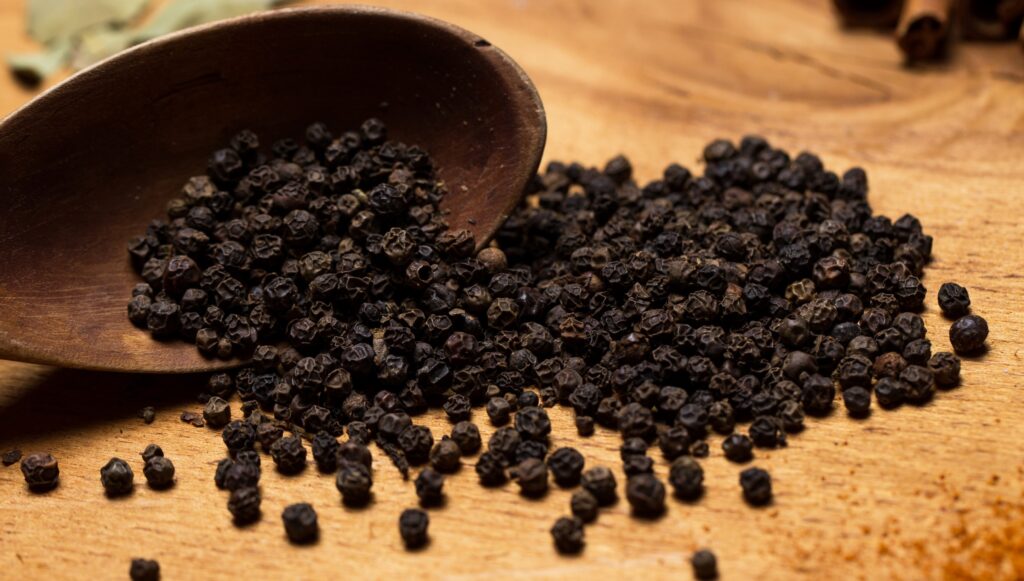
Black pepper contains many skin healing properties making it an excellent fungicide. You may not know that extracts from black pepper are used in food and medicines to keep them away from fungus.
What you need to do is, prepare the black pepper paste mix it with honey and apply it to the affected area.
Turmeric Paste to Treat Fungal Acne
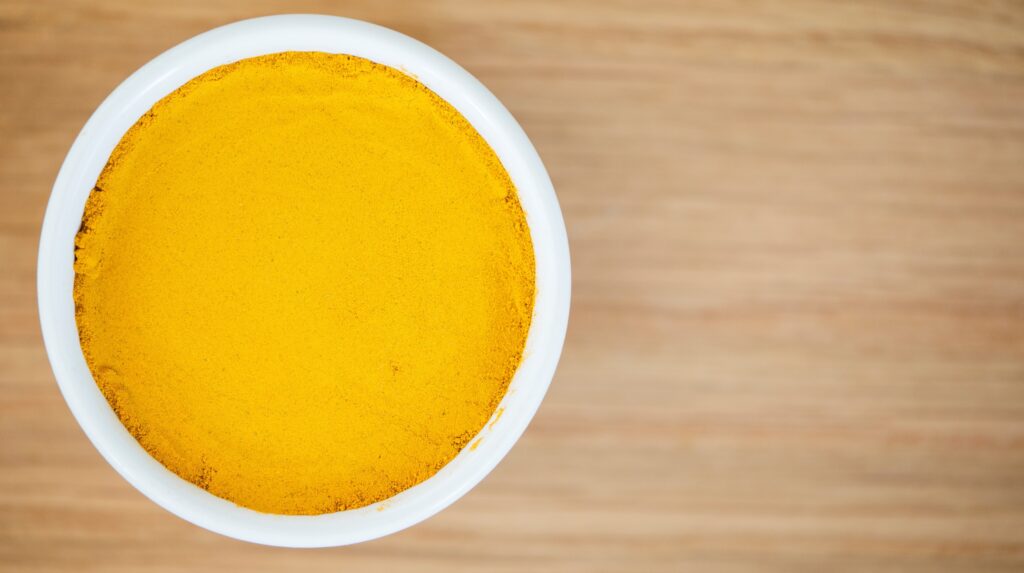
If you have fungal acne on the face, then for you this ultra-antibiotic turmeric paste can be effective. You can also add honey or milk to make the paste.
Honey is antibacterial, and milk aids in the removal of dirt that can clog pores. Milk and honey both help to remove acne scars and give you a clear, blemish-free complexion.
When will this fungal acne go away?
It completely depends on the severity It can take anything from a few weeks to a month for your disease to entirely clear out of your skin. This infection can be return if it does not cure properly with good treatment. It is recommended to follow measures even after you think the fungus is gone.
Are fungal infections contagious?
Majority these fungus infections are contagious, meaning they can spread through direct or indirect person to person contact. What best you can follow is, not to touch the affected areas, and follow the below treatments to get rid of your acne fungus and maintain proper cleanliness.
Best Fungal Acne Products to Keep your Face Clear
If you want immediate results and you are familiar with such products, then you can try using these products to keep your acne away.
Nizoral AD Antidandruff Shampoo
This shampoo is thick, and the rich thick lather helps rinses your scalp and hair clean and fresh, helping them clearing your itchy & flaky scalp.
Use this shampoo twice a week in between your regular wash, you’ll experience powerful dandruff clearance.

Lotrimin Ultra athletes’ favorite anti-fungal foot cream
It is a great cream to treat your fungal infection on your feet or around it, it will give you instant relief from itching, burning, and cracking of skin too.
Jock itch and ringworm are also treated: Fungus on your skin can also cause jock itch and ringworm. This prescription cream is designed to address all three problems.

Keeping Dirt and Oil Away
It is an excellent body scrub that will minimize your pores, also it will help in removing dirt from your face, dark spots, etc. Help in treating your dry skin and make your skin healthy and clean.
You can use this body exfoliator on a regular basis to keep fungal acne away.

Clearasil Acne Treatment Cream
Clearasil takes on pimples both above and below the skin’s surface, treating them at their core for clear, glowing skin in no time.
It is dermatologically tested and is designed, and we recommend you only make use of this cream to treat acne.

TULA Acne Treatments + Clear Skin
leave skin glossy and supple. Good for everyone. Suitable for all skin types and ages, particularly for skin that is dry or acne prone.
You will love this product as much as we do.

Remove Fungal Acne with Essential Oils
According to new research, many invasive fungal diseases are resistant to all known fungal remedies. On the other hand, plant-derived medications and extracts, have shown to be more effective in treating these illnesses.
The antifungal activities of the essential oils are described below.
Thyme Oil

Thymol and carvacrol are phytochemicals that are strong enough to kill and prohibiting specific kinds of fungus. You can use thyme oil as a spot treatment for fungal acne on your forehead or anywhere on your face.
Clove Oil

The skin calming and anti-inflammatory qualities of clove oil relax the skin and accelerate the healing process.
Oregano Oil

This oil is rich in antioxidants that will help to build your skin immunity. You can use this oil on a daily basis or two times a day to cure your acne quickly.
Eucalyptus Oil

Eucalyptol in eucalyptus oil showed great results against numerous pathogenic fungal strains. It is therefore largely used to treat the symptoms of fungal acne.
Tea Tree Oil

Tea tree oil also includes powerful antioxidants to improve skin conditions in a short period of time.
Virgin Coconut Oil

Antifungal is one of the countless advantages of virgin coconut oil. You can use this oil regularly for your affected areas it will stop the fungal spread and its growth on your skin.
Turmeric Oil

Applying turmeric oil to fungal acne can treat sores permanently. Turmeric also brightens your skin and stops acne scars from forming.
Conclusion
Anti-acne therapies won’t help with fungal acne. Instead, you must properly diagnose such an infection to treat it correctly.
Understand and detect this particular form of skin illness that may also help you prevent future outbreaks.

